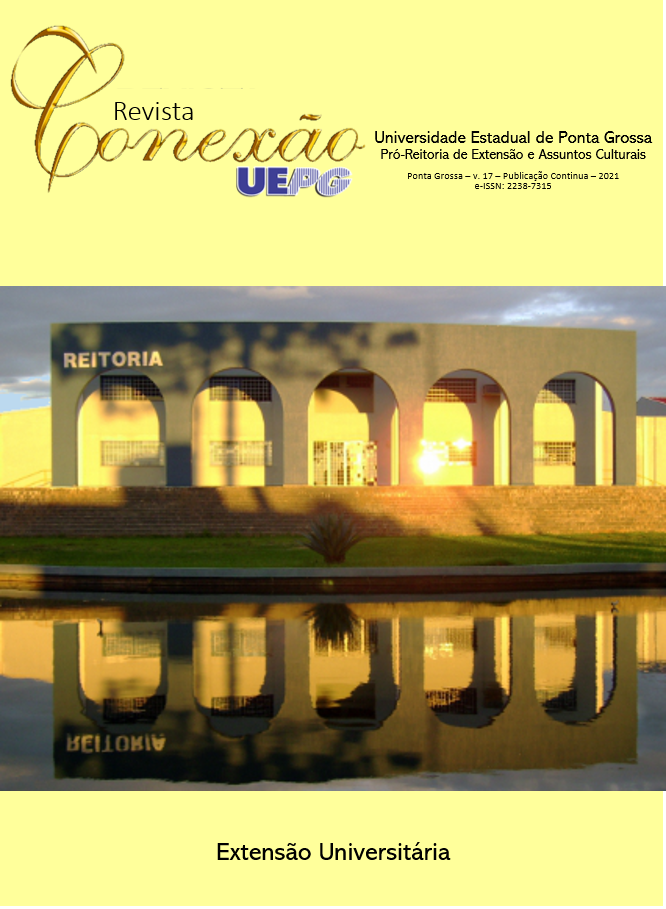“GREEK GIFT”, A DYNAMIC TO COMBAT AEDES AEGYPTI, THE MOSQUITO OF MANY VIRUSES
DOI:
https://doi.org/10.5212/Rev.Conexao.v.17.16936.015Abstract
The university extension project “Knowing Aedes aegypti and Aedes albopictus, the mosquitoes of many viruses” develops activities which aim to mediate learning about these mosquitoes and the diseases caused by them. Combining scientific information and playfulness, it seeks to facilitate children's learning providing them opportunities for changing attitudes through theoretical learning and practical experience. This article presents the activity “Greek gift”, a decorated plastic bottle with a sealed lid, containing, apparently, just water. However, inside, imperceptibly, there are eggs of Aedes aegypti that will eventually hatch. It is a controlled and safe experience in which children discover, through observation and discussion with classmates, the transformations in the mosquito life cycle, realizing that still water can be the place where mosquitoes reproduce very fast. The project seeks to change permanently attitudes as well as to present, throughout this article, a new playful tool that can be used in different pedagogical contexts.
Downloads
Downloads
Published
Issue
Section
License
a) Authors retain copyright and grant the journal right of first publication with the work simultaneously licensed under a Creative Commons Attribution License that allows others to share the work with an acknowledgement of the work's authorship and initial publication in this journal.
b) By submitting an article to the Revista Conexão UEPG and having it approved, the authors agree to assign, without compensation, the following rights to the Journal: the rights of first publication and the rights to redistribute the article and its metadata to the indexing and reference services that the editors deem appropriate.
c) Readers are free to transfer, print out and use the articles published in the Journal, as long as there is always explicit mention to the author(s) and to the Revista Conexão UEPG and as long as there is no alteration of the original work. Any other use of the texts needs to be approved by the author(s) and by the Journal.






